"Fresh ready-to-eat products are perceived by the consumer as a healthy convenience with high added value. It is clearly a niche market. Even in times of crisis, their sales increase," says Fermín Aldaz, commercial and marketing director of Florette Ibérica.
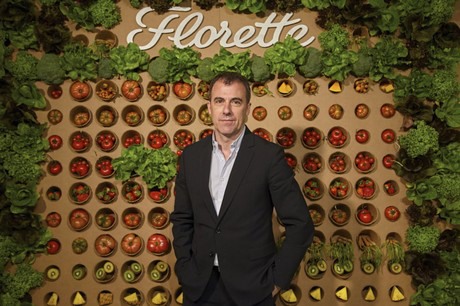
With a 50% market share, which puts it ahead of Verdifresh and Primaflor, Florette reached 205 million Euro in turnover last year. Its salads seemed an eccentric idea 30 years ago, when they were first launched. Now the market has become more dynamic thanks to its fresh convenience products, which seem almost "necessary" nowadays.
The development and needs of society are reflected in consumer preferences. In Spain, the purchases of fresh cut or convenience products continue to grow. In 2017, they increased by 9.5%, compared to the 3.7% of the market as a whole. Fresh cut and ready to eat salads are currently bought by 8 out of every 10 Spanish households.
The trend is not simply about convenience, but also about health, flavor and appearance. "The introduction of a certain type of fresh cut products, such as bagged salads, has promoted healthy habits. Once certain healthy foods have been added to one's diet, their consumption continues on a regular basis. Florette started with simple, basic salads. Now the new textures, flavors and colors have improved the experience and make you want to come back for more. The baby leaf segment, for example, is attracting a lot of consumption. And in the last 5 years, ultraconvenience products, like the steamed Asian and Indian 'Micro' recipes for the microwave, have also become a hit."
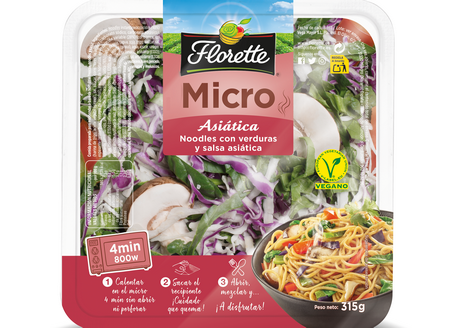
Cutting-edge technology to preserve the scarcest good: water
"The more severe weather irregularities of recent years have become an indisputable reality for the agricultural sector. Its consequences (ecological, economic, etc.) are innumerable, and not only in Spain. Water is a scarce resource and we are socially responsible for it. Given the strange rainfall statistics, contingency plans and efficient resource management are needed. This includes protected crops, water management and recovery systems, drip irrigation, micro-irrigation or rainwater harvesting, the enforcement of zero waste techniques , etc. Strategic planning is a must," says Fermín Aldaz.
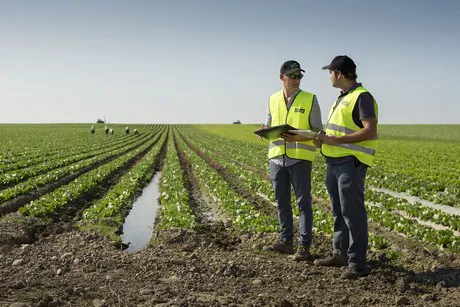
Florette's great asset is its long and close relationship with local agricultural producers. It also controls 50% of its own production, thereby ensuring the supply of raw materials. "In Spain, it is possible to have rotating cultivation, from north to south, and at different altitudes. This geographical complexity allows us to obtain an endless variety of crops throughout the year. Without the raw materials, we wouldn't be able to offer a steady supply of quality products. The contingency alternatives are also important to alleviate failed campaigns due to the weather conditions. The biggest challenge for agriculture is, without a doubt, the weather," he said. 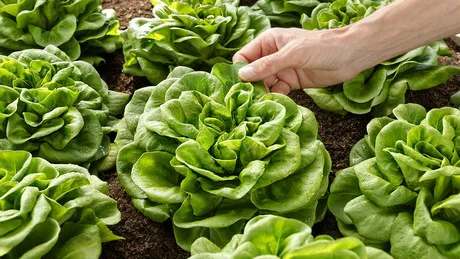
The cold chain is vital
With a cross-sectional team of more than 1,800 professionals of all profiles, and state-of-the-art technology (climate control, crop parameters control systems, etc.), Florette's salads take 24 hours to travel from field to fork, going through harvest, selection and washing, cutting, sanitation, weighting, packaging and transport. "All links in the cold chain are vital in order to bring the freshness of the garden to consumers and the hotel industry. In fact, the products not only retain their properties, but are actually better protected inside their packaging. The only disadvantage of our fresh cut products is that their shelf life is limited, making transport difficult. That is why we have our own crops across the Iberian Peninsula and the Canary Islands," says Fermín Aldaz.
Florette Ibérica devotes 8% of the volume to exports to neighboring countries, such as France and Portugal.
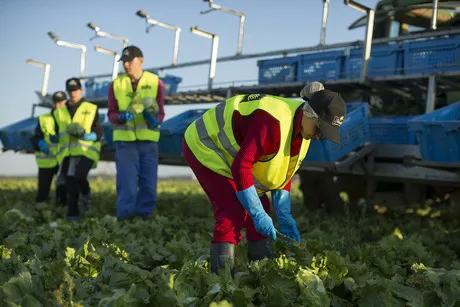
Plasticulture, ever-present on shelves and e-commerce
"Responsible management is a necessary commitment for all consumer sectors, including e-commerce. The problem is not exclusive to greengrocers, as unnecessary and redundant containers can be found on any shelves. In the fresh cut and ready to eat section, they are a guarantee of food safety," says Fermín Aldaz.
"We have achieved a 10% reduction in the use of packaging by resorting to intelligent materials and designs. Another key is the circular economy. The ideal packaging should be made from recycled materials that are also recyclable and which are recycled in practice. The use of durable containers and a circular economy can entail drastic reductions. And of course, the replacement of plastic with alternative materials," says Fermín Aldaz.
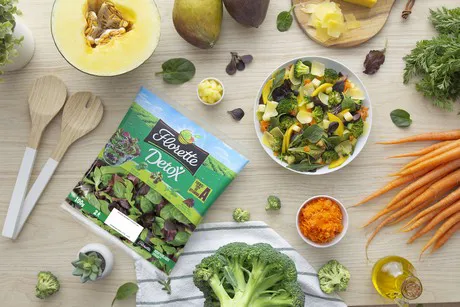
Commitment and sustainability
"At Florette, we show our commitment to the environment through initiatives such as plogging. We collect the waste that we come across with when going for a run or a walk. It is a way of sporting while helping keep the environment clean," says Fermín Aldaz.
Florette recently participated in a plogging day in the Navarre Ribera within the framework of the project "Libera 1m2 por la naturaleza" ("Free 1m2 for nature").
Miguel Ángel Muñoz, ambassador of the challenge #FlorettePloggers:
For more information: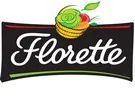
Florette
Pol. Industrial El Olivo C/2 nº1
31320 Milagro, Navarre. Spain
T: +34 948 40 92 00
info@florette.es
www.florette.es
